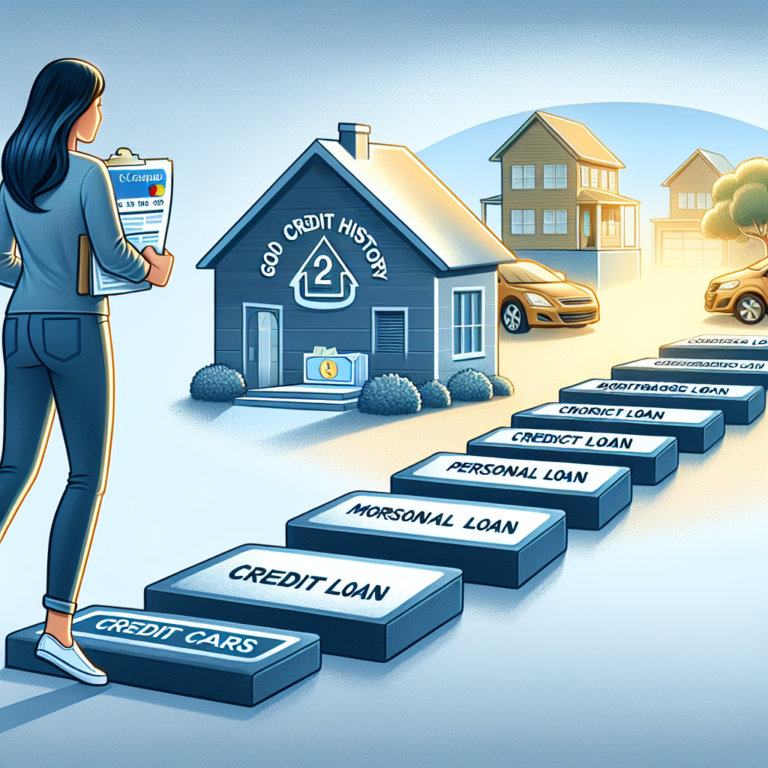The Impact of Personal Loans on Your Credit Score
In today’s financial ecosystem, personal loans have emerged as a critical tool for managing expenses, whether for consolidating debt, making a significant purchase, or covering unexpected emergencies. However, the decision to take out a personal loan should not be taken lightly, particularly due to its potent impact on your credit score. Understanding how personal loans influence your credit score is essential for making informed financial decisions. This blog post delves deep into the various ways a personal loan can affect your credit score, both positively and negatively.
What is a Credit Score?
Before diving into the effects of personal loans, it’s important to comprehend what a credit score is and how it is calculated. A credit score is a numerical representation of your creditworthiness, usually ranging from 300 to 850. The most commonly used credit score model is the FICO score, which is calculated based on five key factors:
- Payment History (35%): Your record of on-time or late payments.
- Amounts Owed (30%): The total amount of debt you owe as a percentage of your available credit.
- Length of Credit History (15%): The duration over which you’ve been using credit.
- Credit Mix (10%): The variety of credit accounts you hold, including credit cards, mortgages, and loans.
- New Credit (10%): The number of new credit accounts you’ve opened recently.
With these factors in mind, let’s explore how taking out a personal loan impacts each of these elements.
Positive Impacts of Personal Loans on Your Credit Score
Diversifying Your Credit Mix
One of the lesser-known factors determining your credit score is your credit mix. A personal loan represents an installment loan, which differs from revolving credit like credit cards. Adding a personal loan to your credit profile can thus improve your credit mix, potentially boosting your credit score.
Reducing Credit Utilization
Taking out a personal loan to consolidate credit card debt can be a strategic way to lower your credit utilization ratio, a critical component of your credit score. The credit utilization ratio is calculated by dividing your total credit card balances by your total credit limit. Moving your high-interest credit card balances to a personal loan can reduce this ratio, potentially enhancing your credit score.
Building a Positive Payment History
If you repay your personal loan on time each month, this adds positive data to your payment history, the most significant factor in your FICO score. Timely payments demonstrate to creditors and lenders that you are responsible and can manage debt effectively, which is likely to lift your credit score over time.
Negative Impacts of Personal Loans on Your Credit Score
Hard Inquiries
When you apply for a personal loan, lenders typically perform a hard inquiry on your credit report to assess your creditworthiness. A hard inquiry can temporarily lower your credit score by a few points. Although this impact is usually short-lived, multiple hard inquiries within a short time frame can have a more pronounced negative effect.
Increasing Debt Load
Taking out a personal loan increases your overall debt, which can negatively impact your credit score, especially if you struggle to keep your debt-to-income ratio manageable. High levels of debt can signal to lenders that you may be overextended and, therefore, a higher credit risk.
Potential for Missed Payments
While making timely payments can boost your credit score, missing payments can have the opposite effect. Even a single missed payment can significantly damage your credit score and remain on your credit report for up to seven years. Therefore, borrowing more than you can afford to repay is a risk not worth taking.
Best Practices to Maximize Positive Impacts
While personal loans come with both benefits and drawbacks, several best practices can help you maximize the positive impacts on your credit score:
Create a Repayment Plan
Before you take out a personal loan, establish a clear, realistic repayment plan. Budgeting for monthly payments ensures you won’t fall behind and risk damaging your credit score. Utilize automatic payments if possible to avoid missed deadlines.
Consider Loan Purpose
Be strategic about why you’re taking out a personal loan. If your goal is to consolidate debt, ensure that you’re committed to reducing overall debt rather than simply moving it around. Personal loans can be particularly beneficial if they help you manage your finances more efficiently and reduce higher-interest debt.
Monitor Your Credit Report
Regularly check your credit report to ensure that the personal loan and your payments are reported accurately. Errors or inaccuracies could negatively impact your credit score. Reporting errors can be disputed and corrected, but you’ll only know about them if you check your report regularly.
Conclusion
Personal loans are double-edged swords; they have the potential to both positively and negatively impact your credit score. By understanding the nuanced ways in which a personal loan interacts with your credit profile, you can make informed decisions that bolster your financial health. Whether it’s for diversifying your credit mix, reducing your credit utilization, or building a strong payment history, the responsible use of personal loans can be a strategic component of your credit management toolkit. Conversely, it’s essential to be mindful of the potential drawbacks, such as hard inquiries, increased debt load, and the risk of missed payments. By thoughtfully managing the pros and cons, you can navigate the complex landscape of personal loans to your financial advantage.
In summary, personal loans can serve as a valuable financial instrument when used judiciously. The key to reaping their benefits while mitigating risks lies in thoughtful, informed decision-making backed by a solid understanding of their impact on your credit score.





